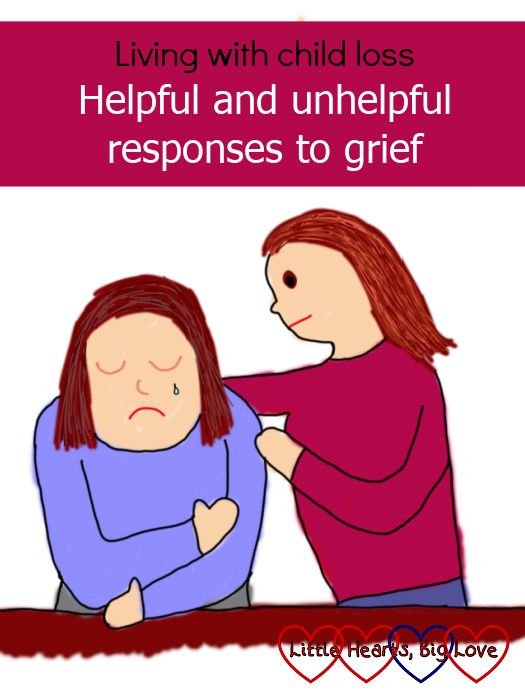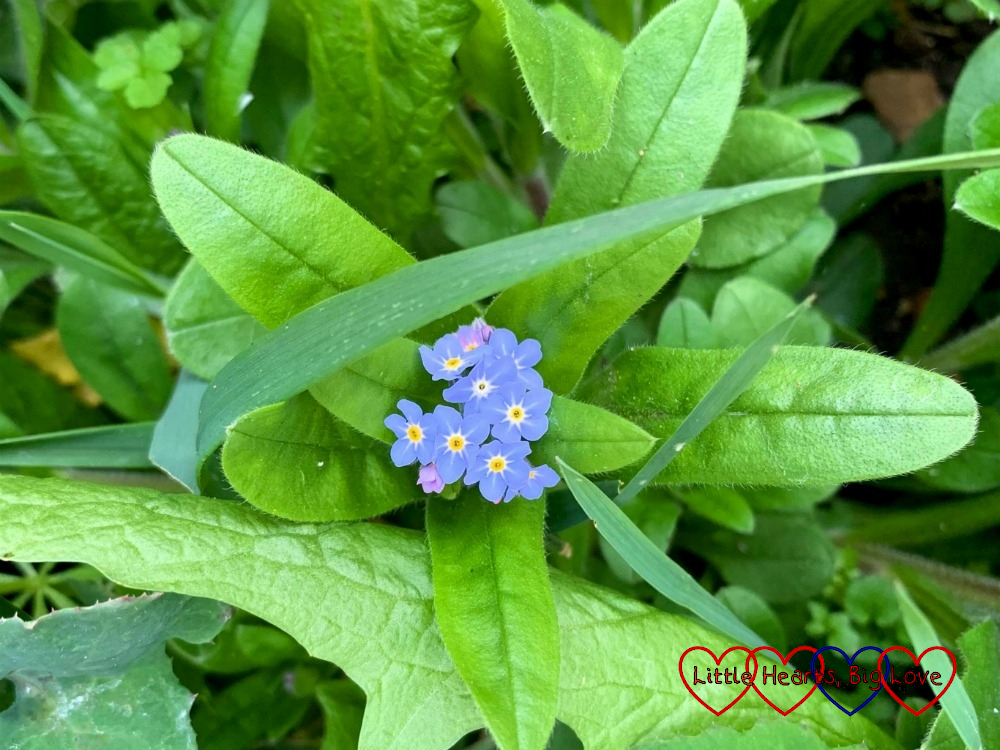Grief is something that many people struggle to know how to react to. When someone you know loses someone they love, it can be hard to know what to do or say. Death is often a bit of a taboo subject, and many people feel awkward when trying to console someone who is bereaved. In the four years since Jessica died, I’ve been on the receiving end of a variety of responses to my grief. While I’m sure all of them have been well meaning, they’ve not always been helpful. Some have been quite insensitive and hurtful to be honest. Some people are frightened of saying the wrong thing and so they say nothing at all.
For me it is helpful to be able to talk about my grief. Doing so helps to break down the taboos around grief and it also helps raise awareness about what is a helpful response to grief and what isn’t. Here are my thoughts on what responses have been helpful and which have not.

How to respond/how not to respond – the basics
These are a few things that I think are key to helping work out whether something might be helpful or unhelpful:
- If your sentence starts with “at least” it is almost certainly better unsaid.
- “How are you?” can be a difficult question to answer. Many people often respond with a polite stock answer, not being sure whether the person asking the question is just making small talk or really wants to know how they are. Plus how someone is can be very changeable, particularly in the early days of grief. “How are you doing today/at the moment?” is a much better way to ask how a grieving person is.
- Being able to make space to sit with your own awkwardness around someone else’s sadness and just be present for them is a huge gift.
- Don’t tell other people how they should feel. That is for them to decide. There is a big difference between expressing something you feel yourself and being told you should feel it.
- Acknowledge the loss and the grief. “I’m sorry for your loss” is often a good start if you don’t know what to say. But it’s also ok to say things like “I don’t know what to say”. Sometimes there just aren’t the words to help.
- Allow the other person to feel whatever they need to feel at that moment in time. It’s okay for them to cry and be sad, it’s okay for them to not really feel anything, it’s okay for them to feel anger or disbelief and it’s okay for them to want to laugh and feel happy, or to distract themselves from their grief.
- Be sensitive when it comes to asking questions. While I was generally okay with people asking how Jessica died, I know other bereaved parents who find this question insensitive and intrusive.
- Share your memories of the person who died, say their name. For me as a bereaved parent, it means so much to know that Jessica is spoken of and hasn’t been forgotten.
- Don’t ignore or avoid the bereaved person if you encounter them. It’s horrible to have people cross the street to avoid you.
- Be willing to help in practical ways, for instance providing a meal that is easy to reheat. The day after Jessica died, we had a grocery delivery arrive from a group of my blogger friends. It included basic things like bread and milk, items for easy-to-prepare meals and a few little treats and was such a kind, thoughtful gesture that helped us a lot in those first few awful days.
- Remember anniversaries and special days and let the bereaved person know you are thinking of them.
- There is no time limit on grief. No matter how long it has been since the loss, it is not someone else’s place to say that someone should move on from their grief. Moving forward happens with time, but it doesn’t have to mean moving on.

Unhelpful things to say in response to child loss
- They’re in a better place now.
- Everything happens for a reason.
- God doesn’t give you more than you can handle.
- It wasn’t meant to be.
- Time heals everything.
- At least you’ve got other children.
- You can always have another child.
- Only the good die young.
- God needed another angel.
- You have to stay strong for your partner/children.
- You’re so strong. I couldn’t cope with what you’re going through.
- You need to move on.
Helpful things to say in response to child loss
- I’m so sorry.
- I don’t have the words but I’m thinking of you.
- Is there anything you need right now?
- I’m here for you.
- It’s okay to feel that way.
- I’m available if you need to talk.
- Would you like a hug?
- Do you want me to sit with you or would you prefer some space right now?
I hope that these are helpful with trying to help walk alongside others in their grief. Grief can feel very lonely at times and knowing that others are there for you really does mean a lot.




This is so interesting and helpful to read. I find it hard to know what to say to someone who is grieving but do always let them know I am thinking of them and their family. Thank you for sharing x
Thank you, glad it is helpful. It is hard to know what to say. Telling someone you are thinking of them is helpful especially with feeling less alone in your grief.
Such a helpful post. Thank you for sharing it. I cannot imagine that anyone would use some of the sentences you have posted in your unhelpful list but I guess sometimes people simply don’t know what to say.
Thank you Lisa. I’ve been on the receiving end of all of those comments. You’re right though, people don’t always know what to say and sometimes they do say something unhelpful without realising how it comes across.
Helpful pointers here. I guess the main thing is for the bereaved to know that people are there for them as they need them.
Absolutely – it does help to know that people are there for you.
A very helpful post Louise, it’s not always easy knowing what to say to someone grieving but it is easy to say the wrong thing even if it’s well meaning.
Thanks Anne. It is difficult to know what to say and I know that the unhelpful comments are usually meant kindly.
Wow that list of unhelpful things is awful, sorry you’ve had to hear words like this. For me, I hated how people avoided the words ‘death and died’ in relation to my fathers death. I’m a great believer in saying ‘don’t know what to say but it’s always better to let you know I’m thinking of you than just not saying anything’
Thank you for joining in with #pocolo
That’s definitely a helpful thing to say – knowing someone is thinking of you even if they don’t know what to say is much better than having your grief ignored. We’ve made a point of using the words “death” and “died” – it’s especially important with children to use clear terminology as it can be confusing for them otherwise. I’m sure people think we’re very blunt sometimes when talking about Jessica’s death but tiptoeing around using clear language only reinforces the idea that death is a taboo subject.
This is really helpful as I am often not good at saying or phasing words the right way so learning to say something in a sensitive manner is really good to know and as you have had experience you are the best person to write this advice which is much better then the genric stuff you get in the texbooks x #pocolo
Thanks Sam, glad you found it helpful.
Thanks for sharing this Louise – it is really helpful and a good reminder of what not to say especially. Take care, and thanks for joining #PoCoLo
Thank you Stephanie, glad you found it helpful.
Thankyou so very much from this. My friend has been very worried about what she should say/not say as her friend’s teenage son committed suicide last week. Child death for whatever reason is such an awful thing and she didn’t want to make it worse while trying to be as supportive as possible.
I’m so very sorry to hear about your friend’s friend’s teenage son, how absolutely heartbreaking for them. It is so hard to know what to say and do in these kinds of situations – often just being willing to be there and listen helps a lot. The Compassionate Friends is a charity that helps support bereaved parents – it’s based on peer support and I’ve found it helpful knowing there are others out there who understand the grief that comes with child loss. It might be something that your friend’s friend might find helpful – there are groups within The Compassionate Friend for parents who have lost a child through suicide.